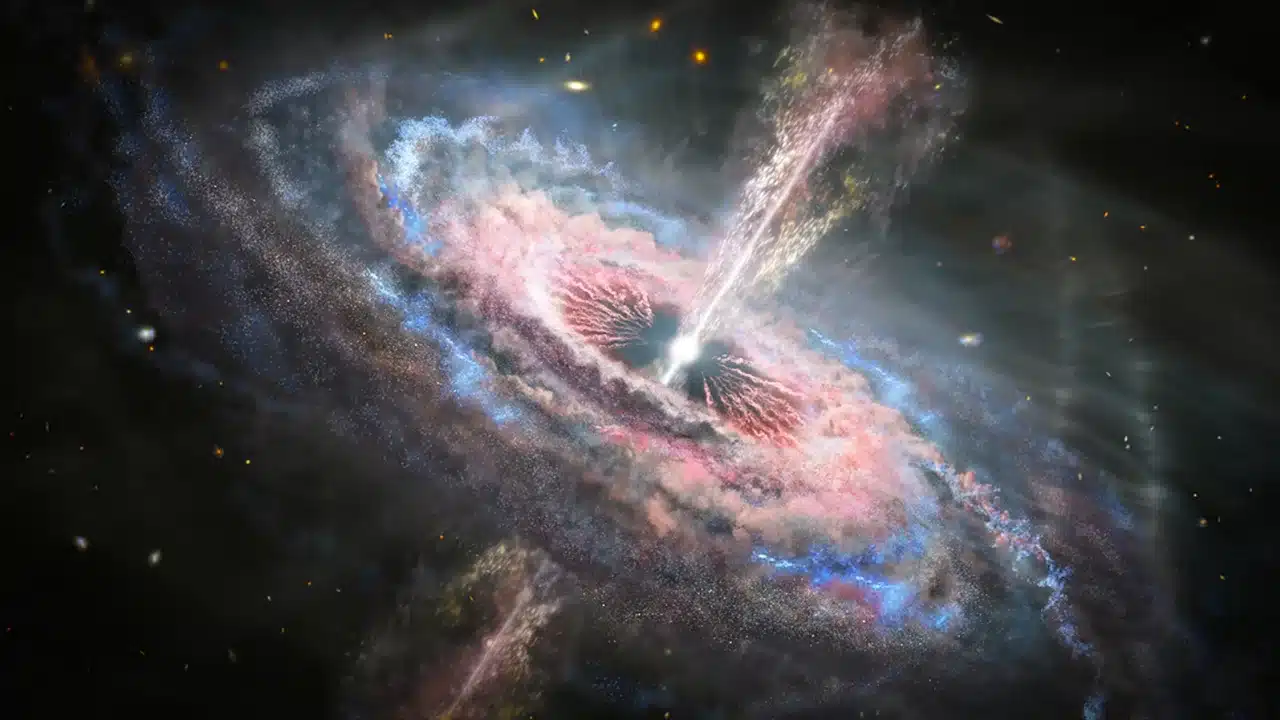In the early universe, when it was only around 1 billion years old, things moved much more slowly than they do now, according to research.
The discovery is consistent with Albert Einstein’s general theory of relativity, which postulates that the past cosmos moved far more slowly.
Studying the universe’s earliest moments is like going back in time because of how enormous it is. Scientists can only observe the deepest regions of the universe because faint light from the oldest galaxies is still traversing the universe to reach Earth.
But looking back into the ancient universe, formed by the big bang about 13.8 billion years ago, is an incredibly difficult task. The reach of sophisticated telescopes, which observe in different wavelengths of light, can only extend so far across the cosmos.
So, scientists turned to a phenomenon that can serve as a kind of celestial timetable: a quasar.
A quasar, or hyperactive supermassive black hole at the center of an early galaxy, is so luminous that it outshines our Milky Way galaxy by 100 times. This brightness acts as a cosmic clock that researchers can use to track time across the universe.
Observing quasars over time allowed a team of astronomers to see how the universe seemed to speed up as it aged. The results of the study published Monday in the journal Nature Astronomy.
“Looking back to a time when the universe was just over a billion years old, we see time appearing to flow five times slower,” said lead study author Geraint Lewis, professor of astrophysics at the University of Sydney’s School of Physics and Sydney Institute for Astronomy, in a statement.
“If you were there, in this infant universe, one second would seem like one second — but from our position, more than 12 billion years into the future, that early time appears to drag.”
Research shows that the universe is expanding, and at an accelerated rate, too, which scientists are still trying to understand.
Unlocking what happened during the early days of the universe can help scientists tackle the biggest mysteries about its origin, how it evolved and what the future holds.
“Thanks to Einstein, we know that time and space are intertwined and, since the dawn of time in the singularity of the Big Bang, the universe has been expanding,” Lewis said.
“This expansion of space means that our observations of the early universe should appear to be much slower than time flows today. In this paper, we have established that back to about a billion years after the Big Bang.”
Study coauthor Dr. Brendon Brewer, a senior lecturer in statistics and an astro-statistician at the University of Auckland, conducted an analysis of 190 quasars that were observed over two decades. The observations, captured at different wavelengths of light, seemed to “tick” like clocks.
Astronomers have also looked to supernovas, or the explosions of massive stars, as another type of cosmic clock that allowed them to track the slow-motion movement of the universe to about half of its current age.
While very bright, supernovas become much harder to observe at greater distances from Earth, which means that astronomers needed another source that would be visible deeper in the early universe.
“Where supernovae act like a single flash of light, making them easier to study, quasars are more complex, like an ongoing firework display,” Lewis said. “What we have done is unravel this firework display, showing that quasars, too, can be used as standard markers of time for the early universe.”

